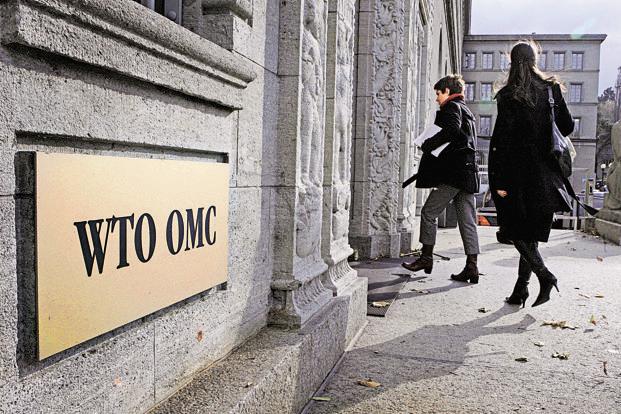
New Delhi/Geneva: Stalled multilateral trade negotiations saw unexpected momentum with several World Trade Organization (WTO) members expressing a broad interest in reviving services negotiations after India announced a proposal for a trade facilitation in services (TFS) agreement during an informal meeting of the WTO Services Council on Monday.
Countries such as China, Turkey, Uganda, South Africa and Brazil lent support to India on the issue, while the US, the European Union (EU), Canada, Japan, Australia, Norway and others, who forced a trade facilitation pact in goods at the Bali Ministerial in 2013, remained silent on India’s proposal.
TFS is similar to the trade facilitation agreement in goods, which set out rules to streamline customs procedures for merchandise trade.
Intervening first at the meeting, India said the TFS agreement “should address the key issues that are pertinent to facilitating trade in services such as transparency, streamlining procedures and eliminating bottlenecks”.
The TFS pact, India said, will ensure “the commitments that were taken in the Uruguay Round are implemented in a meaningful manner and also provide the basis for realization of benefits from improved commitments in future negotiations”.
In a statement released on Monday night, WTO said chairman ambassador Gabriel Duque concluded that the meeting “went beyond previous expectations” as services negotiators gear up for concrete proposals from members to move negotiations forward.
Prior to the TFS proposal, India has already tabled substantive proposals on how to address domestic regulation and barriers on Mode 4 of short-term movement of services providers. But the US, the EU, and Canada, among others, severely opposed the Indian proposals on Mode 4 saying they will not engage in any negotiations on this issue.
Against this backdrop, India, along with a large majority of countries, also called for comprehensive negotiations on domestic regulation and market access in a “holistic” manner at the special session.
India believes setting global standards on trade in services under WTO will help make visa regimes in developed countries more transparent and less restrictive for its skilled professionals. India has threatened to drag the US to WTO over its higher and discriminatory visa fee regimes for Indian software professionals.
China said it is looking forward to India’s proposal on TFS, emphasizing that it would require urgent discussion on such a constructive proposal. Turkey said TFS is a great idea and will look forward to India’s proposal, while South Africa said it wants to study the Indian proposal in writing.
Trade minister Nirmala Sitharaman last month said that at the informal meeting of trade ministers of 30 members of the WTO on 2 June on the sidelines of an Organisation for Economic Co-operation and Development meeting in Paris, WTO director-general Roberto Azevêdo agreed with India’s proposal for having a trade facilitation agreement in services like the one for goods.
“We have been asked to submit a proposal which will then be taken up by all member-countries. We don’t know how negotiations will pan out on this, but we certainly don’t want to make it a subject of give and take,” Sitharaman said.
However, WTO members seem to be looking at a more comprehensive services agreement. The WTO statement cited earlier said countries expressed willingness to resume negotiations on greater market access for services and services suppliers from other WTO members, developing new disciplines to render domestic regulations more objective and transparent, and to ensure that these are not unnecessarily burdensome and services aspects of e-commerce.
Some members said the current engagement could lay the groundwork for potential services outcomes at the 11th ministerial conference set to take place in 2017, the statement noted.
The US presented a three-page non-paper on Friday (1 July) for launching a work programme on e-commerce. The non-paper suggested several examples in the e-commerce work programme that members must consider for an outcome.
They include prohibiting digital customs duties, preventing localization barriers, barring force technology transfers, protecting critical source code, ensuring technology choice and authentication methods, safeguarding network competition, preserving market-driven standardization and global interoperability and ensuring faster, more transparent customs procedures. India and many developing countries, however, remained silent on the US work programme on e-commerce, according to participants who attended the meeting.